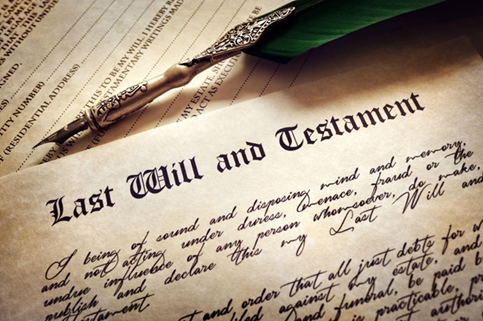 Most adults need an estate plan to address future illness or incapacity, secure their most valuable assets, and leave instructions for friends and family members regarding their final arrangements and the distribution of their assets after their death. Careful planning allows you to protect your assets and beneficiaries and plan for the possibility of mental incapacitation. However, many women in “traditional” heteronormative relationships –– even today –– either leave estate planning to their husbands, or assume that a shared, “couple’s” estate plan is all they need. The reality is that women should develop their own, tailored estate plans for many reasons, regardless of whether they are married, widowed, divorced, or single. Putting some time aside to prepare a thorough estate plan can help women take stock of their priorities and develop an estate plan that upholds them, securing peace of mind as well as a variety of material and immaterial benefits. Speak with an experienced lawyer at Harrison Law, PLLC, by calling (480) 320-2310 for more information regarding estate planning for women.
Most adults need an estate plan to address future illness or incapacity, secure their most valuable assets, and leave instructions for friends and family members regarding their final arrangements and the distribution of their assets after their death. Careful planning allows you to protect your assets and beneficiaries and plan for the possibility of mental incapacitation. However, many women in “traditional” heteronormative relationships –– even today –– either leave estate planning to their husbands, or assume that a shared, “couple’s” estate plan is all they need. The reality is that women should develop their own, tailored estate plans for many reasons, regardless of whether they are married, widowed, divorced, or single. Putting some time aside to prepare a thorough estate plan can help women take stock of their priorities and develop an estate plan that upholds them, securing peace of mind as well as a variety of material and immaterial benefits. Speak with an experienced lawyer at Harrison Law, PLLC, by calling (480) 320-2310 for more information regarding estate planning for women.
The Importance of Estate Planning for Women
Estate planning is vital for women for many reasons. Statistics show they often outlive their spouses. Since many married partners list each other as their default emergency contacts and grant each other powers of attorney, the life expectancy gender gap makes it especially important for women to prepare for a future in which their spouse may not be present. They may need to name alternative individuals who will be responsible for making financial and healthcare choices in the event of their own incapacity. Addressing these concerns head-on, while sometimes uncomfortable, can help to provide safety and security. Women who outlive their spouses will also pass their assets to children and beneficiaries, and a sound estate plan protects their loved ones from disputes among the family and ongoing probate litigation. Married couples can each create separate estate plans that operate in harmony with one another to protect both people. Keeping them separate ensures one spouse’s estate documents and strategy are not dependent on the other to remain functional.
Many women are caregivers of their families, and they can make decisions about guardianship and financial support. More women are entrepreneurs and business owners than ever before in history. Estate planning allows them to protect assets and leave a lasting legacy. The best time to begin planning is when they become a legal adult, and they should update and amend the plan as needed every few years.
What Does an Estate Plan Include?
Estate planning involves organizing finances and using tools to prepare for incapacitation or death. Everything from settling debts and paying taxes to making decisions about transferring assets and property to heirs may be included. Common non-economic considerations for estate planning include choosing guardians for children and pets. Some of the most common estate planning documents include a Last Will and Testament, several types of powers of attorney, trusts, and living wills, also called advance directives.
For incapacity planning in particular, creating estate planning legal documents before they are needed is crucial. According to Arizona Revised Statutes § 14-5506, the individual creating a power of trust must be capable of understanding the legal document at the time of finalization. Making a power of attorney after loss of mental capacity could invalidate the document. Creating a will or other estate documents after an illness could lead to challenges and disputes among family members.
7 Steps for Estate Planning
The seven essential steps of estate planning include the following:
- Create an inventory of all tangible and intangible assets
- Consider dependents and other family member’s needs to provide for them after death
- Establish estate planning documents, such as a Last Will and Testament, power of attorney, and healthcare directives
- Review beneficiary selections on documents and accounts, including insurance policies, retirement accounts, and bank accounts
- Decisions about the division of the estate between the heirs
- Prepare and organize estate planning documents and paperwork
- Review and update the estate plan on a regular basis
Estate planners have the opportunity to put their financial affairs in order and make critical decisions regarding healthcare and the division of assets to beneficiaries.
Which Trust Is Best for You?
Revocable and irrevocable trusts are not mandatory, but they are practical estate planning tools that can help protect assets and make decisions about property division. Learning about each of them and the benefits and disadvantages they offer can help estate planners ensure they use the best options for their unique circumstances.
- Revocable trusts allow the creator, also called the grantor, to manage or make changes after funding them or cancel the trust at any point
- Irrevocable trusts are permanent, and once the grantor funds them, they cannot make changes; however, they offer additional asset protections that revocable trusts do not offer
- Testamentary trusts are part of the will, and are activated by the death of the testator/grantor
- Special needs trusts allow estate planners to continue providing financial support to disabled dependents or family members after death
- Spendthrift trusts provide payouts to beneficiaries over time rather than a lump sum payment after the estate planner’s death
- Charitable trusts allow estate planners to donate money to the charity of their choice while enjoying tax benefits
Harrison Law, PLLC, has extensive experience with estate planning for women and may be able to answer questions and help determine the best option for the individual’s needs and desires.
The Top Reasons Estate Planning Is Vital for Women
Estate planning is vital for women for many reasons. Some of the top reasons they should make it a priority include:
- Women commonly live longer than men and may outlive their spouse
- Many women earn less than men throughout their lives, making a thorough estate plan crucial
- Women are often the custodial parent after separation or divorce
- Many women are professional business owners and have personal wealth
- Estate planning allows women to make essential decisions regarding end-of-life medical care
According to the American Bar Association, advanced health care directives provide the ability to plan for end-of-life care, allowing the estate planner to make crucial decisions about treatment preferences. If someone is in an accident or becomes ill and mentally incapacitated without an estate plan and healthcare directives, their loved ones often face additional stressors. They must petition the court to seek approval for the legal authority to make vital medical decisions.
Schedule a Consultation With an Experienced Estate Planning Attorney Today
Estate planning is essential for all adults to protect their future, their assets, their dependents, and their beneficiaries. Estate plans are vital for every stage of life, whether young and single, married, or older and widowed. While an estate plan is important for virtually everyone who is in a position to make one, women often have gender-specific circumstances and benefit significantly from addressing these with tailored estate plans. Schedule a consultation with a seasoned lawyer at Harrison Law, PLLC, for more information and legal advice about estate planning for women by calling (480) 320-2310.
© 2023 Matthew W. Harrison and Harrison Law, PLLC All Rights Reserved
This website and article have been prepared by Harrison Law, PLLC for informational purposes only and does not, and is not intended to, constitute legal or financial advice. The information is not provided in the course of an attorney-client relationship and is not intended to substitute for legal advice from an attorney licensed in your jurisdiction.






